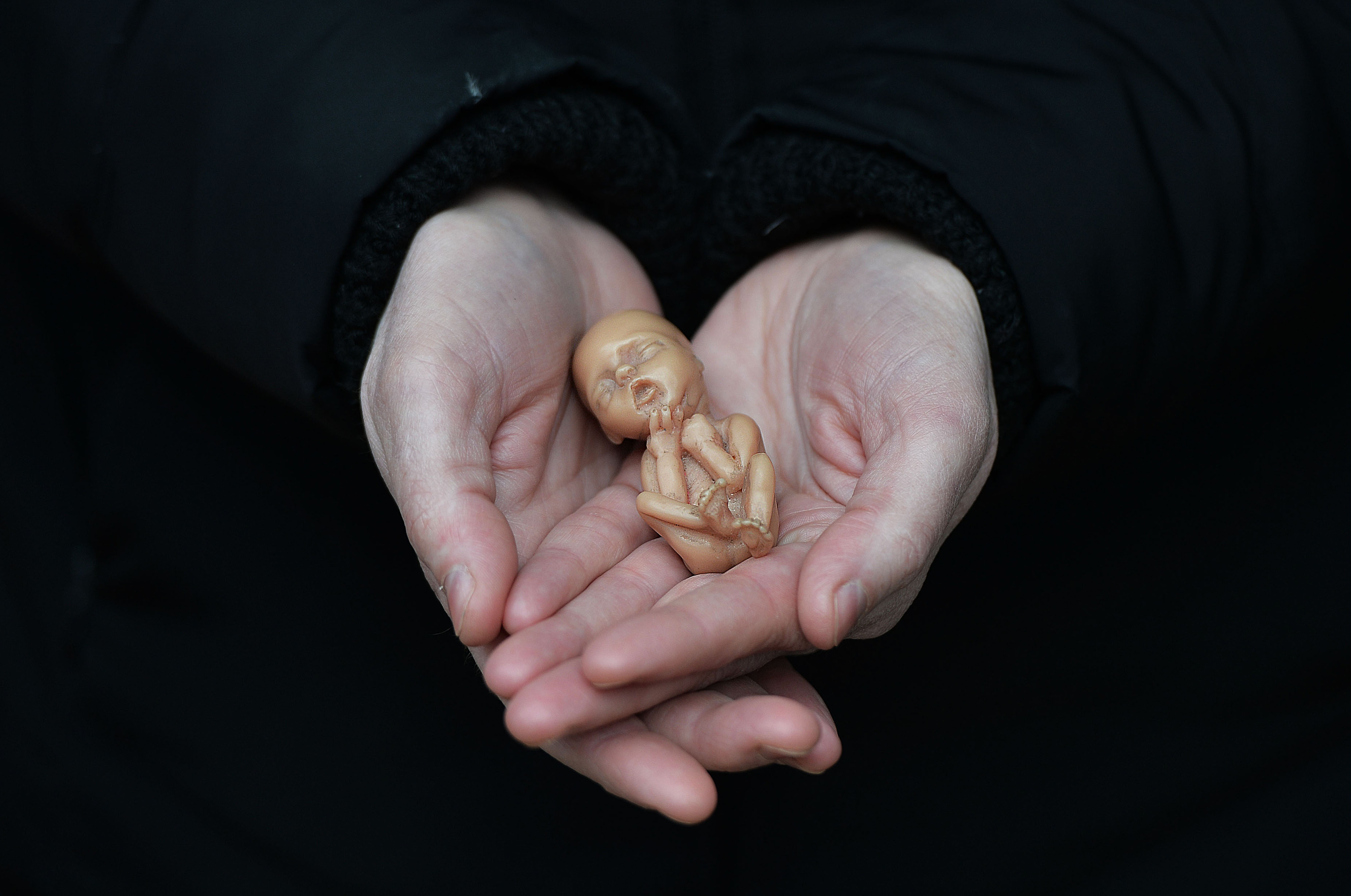Why anti-abortion activists are targeting UK universities
National Union of Students reports rise of pro-life groups on campuses

A free daily email with the biggest news stories of the day – and the best features from TheWeek.com
You are now subscribed
Your newsletter sign-up was successful
Anti-abortion activists are increasingly targeting UK university campuses in a bid to recruit students to pro-life causes, according to a new study by the National Union of Students (NUS).
The number of anti-abortion societies in university students’ unions nationwide has risen just eight in 2018 to 14. The increase comes despite “fierce opposition from students who are overwhelmingly pro-choice”, says The Guardian, which reports that “some student unions have been threatened with legal action if they attempt to prevent anti-abortion groups opening on campus”.
The publication of the NUS study comes months after The Independent reported that a number of pro-life students had received threats of “milkshaking” - being pelted with drinks as a means of political protest - from their peers as their movement grows increasingly vocal.
The Week
Escape your echo chamber. Get the facts behind the news, plus analysis from multiple perspectives.

Sign up for The Week's Free Newsletters
From our morning news briefing to a weekly Good News Newsletter, get the best of The Week delivered directly to your inbox.
From our morning news briefing to a weekly Good News Newsletter, get the best of The Week delivered directly to your inbox.
According to The Guardian, an organisation called the Alliance of Pro-Life Students (APS) is helping students to set up their own anti-abortion societies, and encouraging them to “affiliate with their students’ unions in order to gain access to facilities, resources, students’ union funding and training opportunities”.
APS chief executive Madeline Page said: “Our societies remain autonomous and students are welcome to run their society as they see as most appropriate to their university’s setting. We do not dictate how they should be run, nor do we run any societies as an organisation.”
Cardiff University has become the latest campus battleground following a vote by the students’ union to adopt an official pro-choice stance.
In response, an new anti-abortion society called Cardiff Students for Life was set up in October. The group’s website encourages members to get involved with the wider anti-abortion movement through events such as the annual March for Life and “40 days of life” vigils outside clinics.
A free daily email with the biggest news stories of the day – and the best features from TheWeek.com
Rachel Watters, women’s officer at the NUS, told The Independent: “Some externals which are anti-choice have had a greater presence on campus and some are attempting to form societies, but the vast majority of students and student unions oppose that view.”
Anti-abortion activism in the UK
Anti-abortion movements have been active in the UK since the passage of the 1967 Abortion Act.
These groups include the Society for the Protection of Unborn Children (SPUC), which was first established to try to prevent the act from being passed and which says its mission is to “protect human lives at the national and local level, and to build a society free from abortion”.
Until recently, pro-life organisations have been marginalised in the UK, but CNN reports a recent increase in “Americanised tactics” in anti-abortion activism in Britain, as campaigners follow the examples of their more vocal, militant US counterparts.
Speaking to the US broadcaster in July, Franki Appleton, an advocacy adviser for abortion services provider Marie Stopes UK, said that women trying to access reproductive health services in Manchester were facing some of the worst anti-abortion harassment ever seen in Britain.
“Over the past 14 years, anti-abortion gatherings outside the (city) centre, in particular, have been escalating in frequency and size and there has been an escalation in the harassing behaviour as well,” she said.
-
 The environmental cost of GLP-1s
The environmental cost of GLP-1sThe explainer Producing the drugs is a dirty process
-
 Nuuk becomes ground zero for Greenland’s diplomatic straits
Nuuk becomes ground zero for Greenland’s diplomatic straitsIN THE SPOTLIGHT A flurry of new consular activity in Nuuk shows how important Greenland has become to Europeans’ anxiety about American imperialism
-
 ‘This is something that happens all too often’
‘This is something that happens all too often’Instant Opinion Opinion, comment and editorials of the day
-
 How corrupt is the UK?
How corrupt is the UK?The Explainer Decline in standards ‘risks becoming a defining feature of our political culture’ as Britain falls to lowest ever score on global index
-
 Trump demands $1B from Harvard, deepening feud
Trump demands $1B from Harvard, deepening feudSpeed Read Trump has continually gone after the university during his second term
-
 ‘The science is clear’
‘The science is clear’Instant Opinion Opinion, comment and editorials of the day
-
 ‘The economics of WhatsApp have been mysterious for years’
‘The economics of WhatsApp have been mysterious for years’Instant Opinion Opinion, comment and editorials of the day
-
 ‘It may portend something more ominous’
‘It may portend something more ominous’Instant Opinion Opinion, comment and editorials of the day
-
 The high street: Britain’s next political battleground?
The high street: Britain’s next political battleground?In the Spotlight Mass closure of shops and influx of organised crime are fuelling voter anger, and offer an opening for Reform UK
-
 Is a Reform-Tory pact becoming more likely?
Is a Reform-Tory pact becoming more likely?Today’s Big Question Nigel Farage’s party is ahead in the polls but still falls well short of a Commons majority, while Conservatives are still losing MPs to Reform
-
 Summers out at Harvard, OpenAI amid Epstein furor
Summers out at Harvard, OpenAI amid Epstein furorSpeed Read Summers was part of a group being investigated by Harvard for Epstein ties